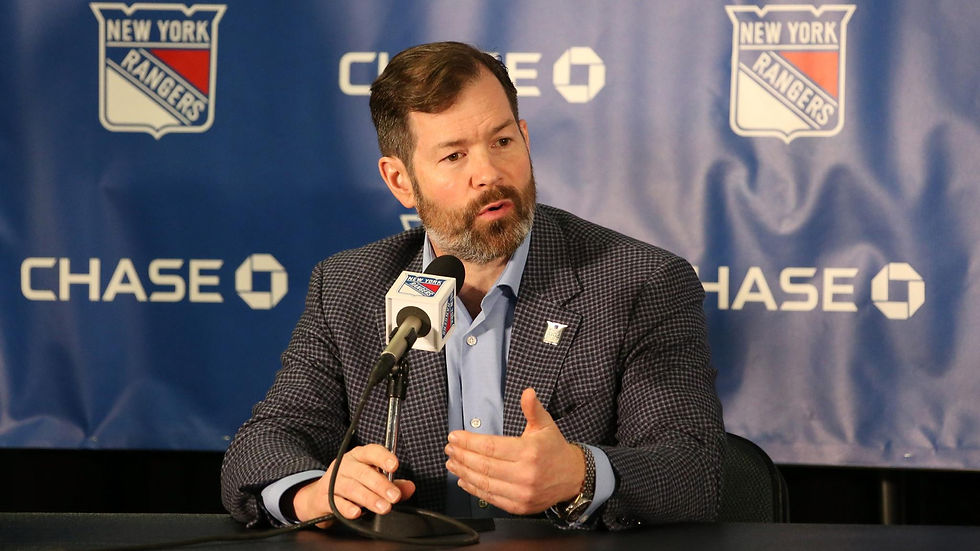- May 3, 2023
- 4 min read
Mike Richter continues advocacy for NHL Green, healthy environment
Retired Rangers goalie promotes 'foundational importance' of awareness, clean living, work focused on community rinks in op-ed for NHL.com

Brightcore Energy President Mike Richter wrote the following op-ed for NHL.com:
Before Mike Richter became a leader in sustainability, he played his entire 15-season NHL career as a goalie for the New York Rangers. He's a Stanley Cup champion (1993-94), gold medalist for the United States and most valuable player at the 1996 World Cup of Hockey and won silver at the 2002 Salt Lake City Olympics. The Rangers retired Richter's No. 35 in 2004 and he was inducted into the U.S. Hockey Hall of Fame as part of the Class of 2008.
Richter played collegiate hockey for the University of Wisconsin before joining the Rangers, and after retiring received a degree at Yale University in ethics, politics and economics with a concentration in environmental policy. He has been a clean energy entrepreneur for 15 years. This is his story as part of Earth Day 2023.

I've always had an interest in the environment even from before the time I was playing professionally. We're all connected to it, and we all depend on it, especially athletes. The simplest version of this is as an athlete, your performance is entirely predicated upon your health. No matter how much talent I have and how hard I work. If I'm not healthy, I'm not going to be at my best. Every player in the NHL and every athlete does their best to work out, rest properly and have the proper nutrition. Why? Because it's the foundation of your performance.
I have three young boys who all participated in sports; two play NCAA hockey. How they think about nutrition and hydration, rest and recovery and cycles of workouts is so much more sophisticated than it was 30 years ago when I was their age, and that's a good thing. As a kid, I explored all the time where there was an edge I can get. Can my diet be better? Can my nutrition during games be better? Can my workouts be more effective? It all pointed to having better health, and therefore better performance. You think about an athlete in terms of just the air that you breathe, the water that you drink, it's really the environment in which you live. If you have a polluted environment, it's going to affect your health, and ultimately your performance. You see this overlap in sports and the environment all the time.
I remember when I first came to New York, I got up in the morning in the summer after my first season or two. I was going for a run, and a local weather station warned that it was a "high ozone level" day. They casually mentioned that it is unhealthy to go for a workout outdoors and I just thought, wow, we've come to that, where they're literally saying on the radio stay indoors. Do not exercise because the more volume of air that you take in, the less healthy you'll be because of the high level of pollution. Somewhere in there is this kernel where there's a connection between your health and your performance. Everything is based upon the natural environment, one way or another.
Read the entire op-ed on NHL.com.


